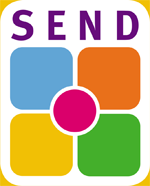SEND Interventions
This page provides an overview of the most commonly used interventions in our local schools, based on insights shared by SENCos during a recent SENCo network meeting. This resource was created in response to the invaluable input of parent carers, who expressed a need for clearer information on the interventions available to support their children. In response to their feedback, we gathered and compiled this information to provide better insight and understanding.
Interventions are often implemented to offer additional support and help bridge any gaps in a child or young persons progress or achievement. These are short-term, targeted programs aimed at also addressing specific social or emotional needs for individual students or small groups. Typically, interventions are carried out by Teaching Assistants (TAs) or Higher Level Teaching Assistants (HLTAs) outside of the main classroom environment.
Talk Boost
Talk Boost is a catch-up programme for children who are behind with talking and understanding words to boost their language skills. Differentiated for children between the ages of 3-10 years, the programme aims to accelerate children’s progress in language skills by an average of six months, after a nine-week intervention. Specifically in the Early Talk Boost programme, there are lots of practical resources including instruments, toys and characters, Jake and Tizzy. Using Talk Boost can significantly improve children’s talking and understanding of words, two thirds of children make good progress after just eight to ten weeks of the programme. Talk Boost intervention involves:
- Small group sessions led by specially trained staff, three times a week
- A weekly whole class activity led by the class teacher
- Parent workshops for children in Nursery or Reception
- A weekly story to be shared with families
Age: Early Talk Boost 0 - 5 year olds
Talk Boost Key Stage One 4 - 7 year olds
Talk Boost Key Stage two 7 - 10 year olds
ELSA
ELSA (Emotional Literacy Support Assistant) sessions aim to provide a nurturing environment where children and young people (CYP) can develop the emotional literacy skills they need to navigate life’s challenges. By addressing emotional, social, and behavioural difficulties early on, ELSA helps CYP understand and manage their emotions, build resilience, and improve their interpersonal skills. This proactive approach ensures that they are equipped with the tools they need to cope with stress and adversity, reducing the likelihood of mental health problems in later life. By fostering a supportive and understanding atmosphere, ELSA empowers CYP to thrive both emotionally and socially, laying a strong foundation for their future well-being. ELSA Support can be a one to one intervention but it may also be a small group intervention.
What areas does an ELSA help with?
- Loss and bereavement
- Emotional Literacy
- Self-esteem
- Social Skills
- Friendship issues
- Relationships
- Managing strong feelings
- Anxiety and worries
- Bullying
- Conflict
- Emotional Regulation
- Growth Mindset
- Social and therapeutic stories
- Problem solving
Age: 4 - 18 year olds
Cool Kids
Cool Kids is a 25-session programme, originally developed by highly experienced occupational therapist Joy High, that is aimed at children and young people (CYP) who require support to develop their gross motor skills.
It is a structured course which helps CYP to catch up on their foundation skills by taking them through the stages of development, starting with working on their backs, tummies, sitting, kneeling and then standing.
From then work is done on balance, bi-lateral movement (crossing over from left to right sides, and vice versa) and co-ordination. This programme works on the foundations of gross motor development which underpin fine motor development and enables students to become calm, confident and better able to concentrate.
Age: 7 - 17 year olds
Snip Spelling
This spelling programme was designed by qualified dyslexic tutors. It can be downloaded for free and covers the ‘high frequency words’ which are the words that are used most often in English.
The SNIP spelling programme is broken into 25 sessions, over 25 weeks, with 9 high frequency words in each session. Each week there is an opportunity to practice the spellings daily using the look, say, cover, write and check method, with 5 further activities to rehearse the spelling of these words in different forms that are fun and engaging.
This programme is appropriate for pupils of 8+ who have already received effective phonic/literacy teaching but are still struggling. By doing this, it fills in any gaps they have in their phonics skills and makes reading easier in terms of both fluency and comprehension.
Age: 8 years +
Read Write Inc - Fresh Start
Read Write Inc. Fresh Start is a proven phonics intervention for pupils who have slipped through the reading net. Pupils make as much as two years’ progress in just two months, using the same tried-and-tested approach as Read Write Inc. Phonics. Fresh Start intervention involves:
- Daily 30 minute phonics lessons
- Sessions focus on each student’s ‘challenge point’
- Sessions taught individually for the first 13 Modules then move to working in small progress groups
- Age appropriate texts
Age: 9 - 13 year olds
Nurture Provision
A nurture group is a focused, short-term intervention for primary or secondary school pupils with social, emotional and behavioural difficulties which make it harder for them to learn in a mainstream class.
A nurture group is a school-based intervention run by two members of staff with up to twelve pupils. This programme helps students build strong relationships with their teachers and peers. It creates a friendly and supportive environment where they can catch up on important early experiences they might have missed.
Age: 5 - 16 year olds